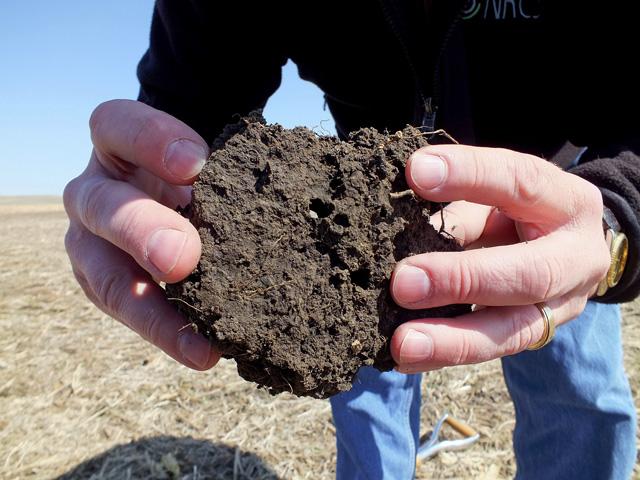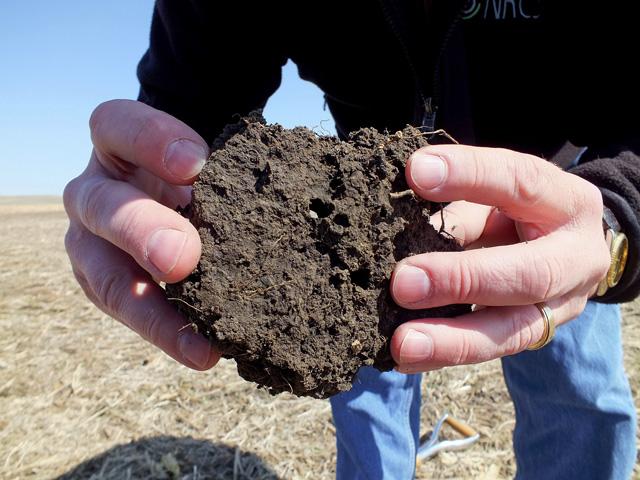Ag Policy Blog
USDA Unveil $300M Greenhouse Gas Measurement, Monitoring Plan
Agriculture Secretary Tom Vilsack will announce Wednesday that USDA will spend $300 million to improve measurement, monitoring, reporting and verification of greenhouse gas emissions and carbon sequestration in climate-smart agriculture and forestry.
The money will come from the Inflation Reduction Act.
On a call to reporters Tuesday, Vilsack said that the improved measurement, monitoring, reporting and verification will increase confidence in statistics on carbon sequestration and encourage the private sector to be more involved in these efforts.
The USDA program, part of the Federal Strategy to Advance Greenhouse Gas Measurement and Monitoring for the Agriculture and Forest Sectors, will be released Wednesday as a draft for public comment.
The Food and Agriculture Climate Alliance (FACA) stated the coalition is encouraged that several FACA priorities are included in USDA's plan.
"We applaud USDA for taking steps to update and improve the quality of data surrounding the emissions reduction potential of climate-smart practices," FACA stated. "FACA supports science-based evaluation mechanisms for GHG quantification that account for the diversity and breadth of agricultural and forestry production systems. This work is critical to enhancing trust and confidence in the measurement of emissions outcomes that will allow new markets to flourish. Continued stakeholder input is necessary to ensure strong protections for producer privacy, and standards for data governance."
White House Climate Adviser Ali Zaidi told reporters in the call Tuesday that the draft document will call on other agencies -- including the Environmental Protection Agency, the Energy Department and the National Aeronautics and Space Administration -- to work with USDA on improving accuracy and reducing uncertainty in greenhouse gas estimates and help further President Biden's goal of achieving a 50% to 52% reduction in greenhouse gas emissions by 2030, compared to 2005 levels.
Vilsack and Zaidi are both scheduled to speak Wednesday at the Universal Food Forum hosted by Michigan State University in Washington.
The strategy was prepared by USDA, EPA, the Interior Department, NASA and others on behalf of the Greenhouse Gas Monitoring and Measurement Interagency Working Group, a USDA news release said.
The draft federal strategy presents a federal plan to enhance measurement, monitoring, reporting and verification in agriculture and forestry through five areas. These include improved greenhouse gas and soil carbon monitoring, alignment and enhancement of related research, utilization of advanced models and tools for better estimations, and prompt and accurate collection of conservation data including through better use of remote sensing data.
Vilsack said the initiative will be "a major collaboration" within USDA involving the Agricultural Research Service, the National Agricultural Statistics Service, the Economic Research Service, the Forest Service and the Natural Resources Conservation Service. Together, Vilsack said, the agencies will "increase accuracy, reduce uncertainty and enhance overall confidence in these estimates. We're data driven, and we seek continuous improvement in our climate-smart agriculture and forestry efforts."
William Hohenstein, director of USDA's Office of Energy and Environmental Policy, within the Office of the Chief Economist, said that the data USDA currently has on climate and carbon sequestration comes from data collected for other purposes and is not necessarily consistent or up to date.
To carry out these tasks, Vilsack said, USDA has identified seven key focus areas that reflect the framework outlined by the federal strategy and are based on substantial input from stakeholders:
- Establish and advance a Soil Carbon Monitoring and Research Network with a perennial biomass component;
- Establish and advance a Greenhouse Gas Research Network;
P[L1] D[0x0] M[300x250] OOP[F] ADUNIT[] T[]
- Expand data management, infrastructure and capacity;
- Improve models and tools for assessing greenhouse gas outcomes at operational, state, regional, and national scales;
- Improve NRCS conservation practice standards and implementation data to reflect greenhouse gas mitigation opportunities;
- Improve temporal and spatial coverage of national conservation activity data; and
- Strengthen the Greenhouse Gas Inventory and Assessment Program of USDA.
USDA has scheduled a webinar with stakeholders and technical experts at 12 p.m. Central on July 21.
Registration is required for the webinar. https://www.zoomgov.com/…
GOP Senators Introduce Bill to Restrict Use of CCC
Republican Sens. Chuck Grassley of Iowa, Roger Marshall of Kansas and Mike Braun of Indiana on Tuesday introduced the USDA Spending Accountability Act, which would limit the disbursal of funds through the Commodity Credit Corporation (CCC), USDA's line of credit at the Treasury, to be permitted only when authorized by Congress.
They said some of the savings could be used for the next farm bill.
Under current law, the Agriculture secretary has discretion to use the CCC to help farmers with a variety of problems.
In a joint news release, the three Republican senators said, "The secretary of Agriculture has broad discretionary authority in spending excess CCC funds. This includes reimbursing farmers for losses due to trade disputes and funding climate grants, often to multinational corporations. Recent instances of discretionary spending abuse have prompted bipartisan concern, as these programs are enacted without input from Congress and allow USDA to act as authorizer and appropriator."
The senators released a Congressional Budget Office cost estimate stating the restriction could save $8 billion over 10 years.
"The substantial savings created by this bill would assist Congress in its goal to find savings in every nook and cranny of the farm bill," the senators said.
Republicans have complained that Agriculture Secretary Tom Vilsack has used the CCC to fund $3.1 billion in climate-related projects. During the Trump administration, Democrats questioned Agriculture Secretary Sonny Perdue's use of the CCC to make $23 billion in payments to farmers after President Trump imposed tariffs on Chinese products that led the Chinese to retaliate in their purchases of U.S. agricultural products. Vilsack has said it is important to maintain the secretary's discretion to use the CCC for problems that occur.
A House funding bill for fiscal year 2024 also would restrict USDA's use of CCC funds.
Bennet, Moran, Heinrich Introduce Groundwater Conservation Bill
Sens. Michael Bennet, D-Colo., Jerry Moran, R-Kan., and Martin Heinrich, D-N.M., on Tuesday introduced the Voluntary Groundwater Conservation Act, which they said will "give family farmers and ranchers the flexibility they need to protect groundwater sources while keeping their agricultural lands in production."
The Voluntary Groundwater Conservation Act creates a new voluntary groundwater easement program at the Agriculture Department's Natural Resource Conservation Service (NRCS) within the Agricultural Conservation Easements Program. This easement program is modeled after the experience of Colorado Open Lands, which signed the first groundwater easement in 2022 for the Rio Grande River Basin.
Specifically, the Voluntary Groundwater Conservation Act would:
- Create a new Groundwater Conservation Easement Program at USDA to encourage voluntary, compensated reductions in groundwater consumption on agricultural land and advance local, regional, or state groundwater management goals;
- Allow NRCS to reimburse transaction costs up to 5% of the federal share and requires an advance payment for limited resource producers to cover these costs;
- Guarantee long-term management flexibility for a producer to continue farming and choose how they reduce their water use, as long as they conserve the amount they've committed to reducing each year;
- Ensure that farmers are fairly compensated using a payment based on the market value for the water right instead of a per acre payment; and
- Clarify that easement funds shall not be counted toward a farm's adjusted gross income and that producers with an adjusted gross income of more than $900,000 are eligible for a waiver from the secretary to participate in groundwater conservation easements.
DTN Ag Policy Editor Chris Clayton contributed to this report.
Jerry Hagstrom can be reached at jhagstrom@nationaljournal.com
Follow him on Twitter @hagstromreport
(c) Copyright 2023 DTN, LLC. All rights reserved.






Comments
To comment, please Log In or Join our Community .